Giving credit where it’s due, Megadimension Neptunia VIIR embodies everything polarizing about Japanese Role-Playing Games. Especially, in its themes, motifs, and mechanics. Fortunately, the result is a cheeky, bright, and clever remake of a concise entry point to a long-established series. The bad news, established fans could very well come away pondering why so much of its predecessor’s content is scaled back and why otherwise satisfying mechanics, are swapped out to questionable results.
Compile Heart thriftier approach toward a complete experience sometimes pays off. While also occasionally befuddling me with its efforts to fix what was never broken. Aesthetically, this could only be called a sensory leap forward. Combat has certainly undergone an efficiency overhaul. While also maintaining a deeply strategic character. At the same time, culled scenes pruning branched endings down to a single endpoint streamlines the time it takes to see everything as well.
At its core, Megadimension Neptunia VIIR still has all the things fans enjoy about the series. From genre-par fan service to its game industry commentary, and even its disregard for the very notion of a fourth wall. However, for anyone else a full helping of this remake may leave players declaring either “Well, that’s a thing that happened” or “What the hell just happened?” Fortunately, as long as you have no illusions about exactly what you are getting into, VIIR is smart enough to cultivate an enjoyable romp en route to either reception.
Review: Megadimension Neptunia VIIR
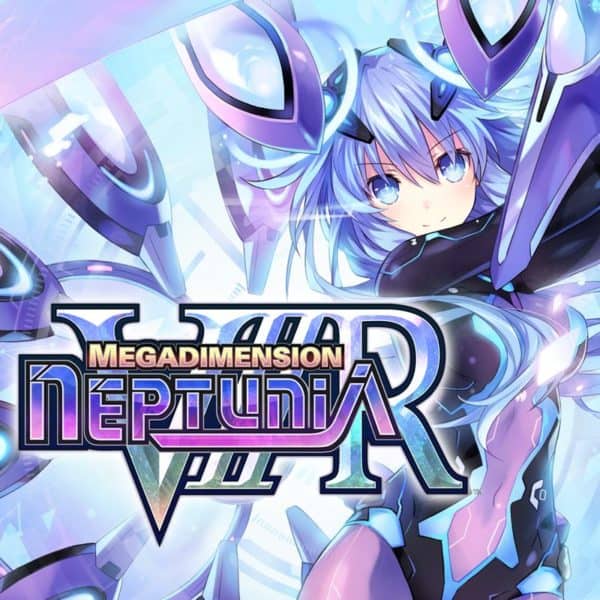
Title: Megadimension Neptunia VIIR
Platform: PlayStation 4 [Reviewed], PSVR,
Genre: Japanese Role-Playing Game
Developer: Compile Heart, Silicon Studio
Publisher: Idea Factory International
Players: 1
Release Date: May 8, 2018
Price: 59.99 (USD)
Basics of the Story
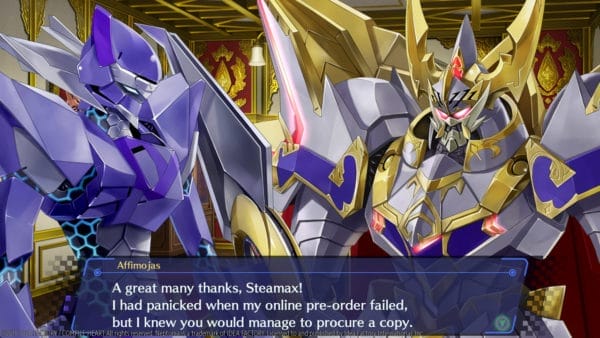
The tale of Megadimension Neptunia VIIR (for the record, spoken as “Vee-Two-Are” or Victory to Realize) comprises three quest-filled chapters with three separate Magical Girl stories set in three different dimensions. In a way, one could almost think of it more as a trilogy of smaller games rolled into one bargain package.
In the interest of further fleshing out the game’s tongue-in-cheek subtextual glee in lovingly taking a jab at the gaming industry, each Console Patrol Unit (yes, “CPU”) Goddess symbolizes a major console or developer. Neptunia herself personifies the unreleased Sega Neptune. While each perpetually struggles to gain a greater share of power than the others, they willingly set aside rivalry whenever some greater evil threatens their shared world. A world appropriately named Gamindustri. In this case, Neptunia and her CPU candidate sister Nepgear ignore warnings from their Oracle, Histoire, that the coming CPU Shift Period will see people abandon their current CPUs to embrace powerful new figures.
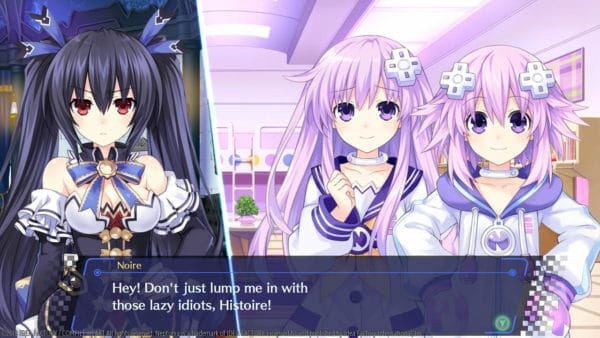
Before either can take Histoire’s words seriously, an ancestral video game console activates and spirits them away to the mech-ravaged alternate Zero Dimension. Thus, beginning their latest adventure alongside Uzume, a Sega Dreamcast effigy, who survived her own world’s war. Upon arrival, the two primary heroes realize their powers have become useless. This is due to being cut off from their inhabitant’s faith called Shares. Later, the CPUs also discover that their Shares are being quickly eradicated by relentless media and internet slander poisoning their good names.
When a week-long unity festival’s climactic battle tournament ends not in friendly competition, but in the CPUs having the floor wiped with them by a mysterious band of strangers, our heroes find themselves forgotten by those they depend on and regroup to investigate and defeat an unknown threat to their very existence.
Making Sense of the Story
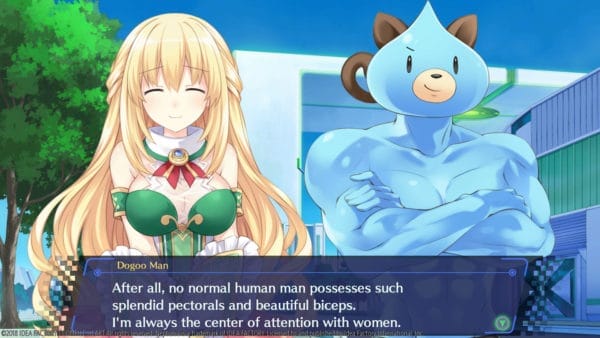
I could delve into even deeper plot points, but to be perfectly honest, even the above summary lays out just a bit more than I should say. Generally speaking, prophetic apocalypse tropes are nothing new to any JRPG anthology. Megadimension Neptunia VIIR shines in large part because Japanese media creators often reward open-minded audiences. Especially those perceptive enough to glimpse a witty or sincere commentary veiled by a bawdy or lurid facade. The skirts are short, necklines plunge and tantalizing cleavage is rarely in short supply. However, sex is merely the saucy worm flavoring the hook. The game takes relatively tired, yet obvious observations of the game industry, and somehow makes them legitimately amusing. After all, who doesn’t favor a bit of cheese wrapped around a dry, sometimes unpleasant pill?
“Our chosen business is a bit of a mess,” the story seems to say. “On the other hand, laughing beats crying about it.”
Examining The Impact
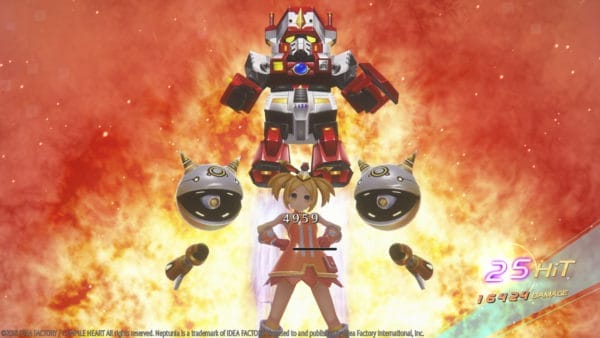
The most impressive aspect of the narrative comes to light when considering the Neptunia franchise’s considerable scope since debuting during the previous console generation.
Four main entries, three portable remakes (on PlayStation Vita). Plus, seven spin-off games dipping into multiple genres, and even one anime.
Not many games arriving as far into a series as Megadimension Neptunia VII stand alone as such a satisfying, relatively independent franchise introduction. Experienced players will glean uniquely amplified satisfaction from its self-referential personality, but nearly any JRPG enthusiast could jump right in and rarely feel a moment of confusion or expositional starvation.
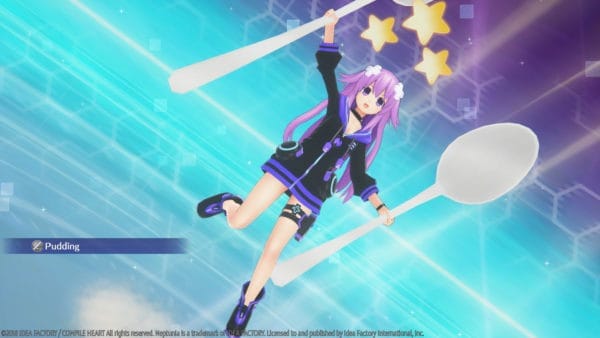
If anything, a mid-stream game that holds up this well on an island apart from its predecessors can spark new players to immediately pick up every other title under its name just to discover what they may have been missing. Since the Neptunia series centers on a vast multiverse. And the direct sequels incorporate alternate timelines within familiar worlds, the autonomy of each title in the series has become something of an admirable hallmark by introducing established faces and locales.
Unfortunately, fans of the original will notice the absence of some scrapped content. This remake pares down the number of endings hinging on your choices. Making gameplay head towards a single inevitable denouement, the original “True” ending. Narrowing the path disappointed me a great amount. while it winds up lighthearted and exciting, it is not exactly deeply layered in the first place. Besides, open-ended resolutions are a traditionally treasured perk of modern JRPGs. Of all the updates to the original game, knowingly slicing replay value without an obvious benefit in trade feels like a pointless waste.
Some Revealing Chatter
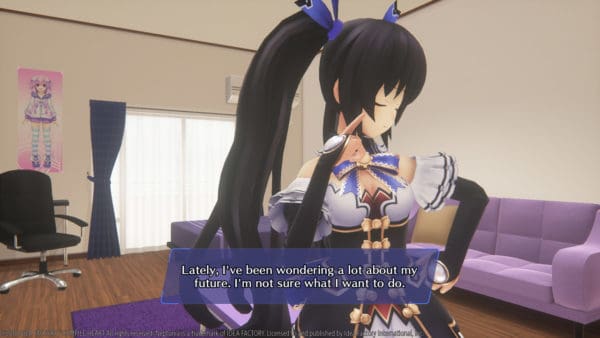
What Megadimension Neptunia VIIR loses by dropping its branching endings, it admirably endeavors to replace with charming interactive heart-to-heart chats. When first entering your tiny Spartan abode, Histoire runs you through basic gameplay instructions and leads a guided tutorial of all the perks your surroundings have to offer. One of these perks includes inviting Neptunia and her allies to each stop by and visit for some friendly banter that blows the fourth wall to smithereens. At one point, you can even expect to be directly asked if you are currently playing Megadimension Neptunia VII. Not to mention, maybe even spoiling just a bit of the later plot, depending on your preexisting knowledge of how the story unfolds. Each Goddess offers 10 distinctive conversations, and how they play out can occasionally differ depending on where you direct your first-person gaze.
Before you even ask, yes, that includes addressing your efforts to stare at their breasts or peer underneath their skirt. Chatter does commonly revolve around the game’s happenings. Although you can expand that some with a PlayStation VR headset equipped. These snippets provide immersive bites of welcome levity between chapters. You can move limited distances in most directions, but more often than not, your part in each scene comes down to events requesting that you nod your head for “Yes” or shake it for “No” in response to a question.
Why Include VR?
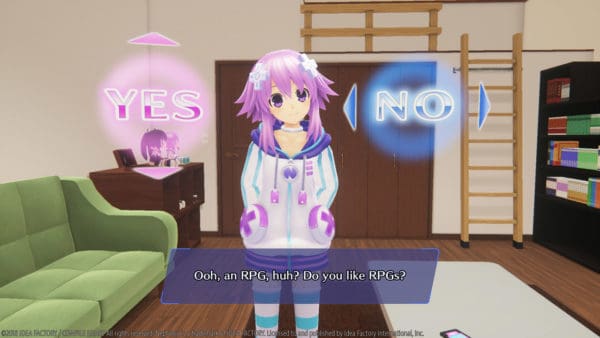
A VR peripheral is a nice touch, but the sequences play out no differently if your input is limited to a controller. Except for small exceptions involving details barely out of your field of view being a bit quicker to catch by turning the headset. Here’s one bigger problem guaranteed to tweak some players’ preferences more than others: the entirely optional VR functionality forces the game to run at a combat-dragging 30fps instead of the original’s 60fps rate.
It’s one thing to throttle performance in favor of a universally accessible feature. In this case, everyone is stuck with a halved framerate, with or without the availability of PlayStation VR. I personally had no choice but to play with a controller, so I had to accept the thorn without the rose.
Looking At Some of the Other Changes
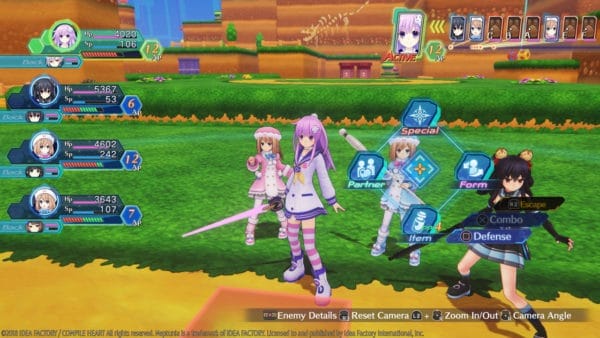
Really, the VR experience cements something of a theme among the remake’s changes. Framerate aside, I hesitate to categorically call any of them indisputable improvements or steps backward though. For example, in place of manual saving, the game substitutes an ultra-aggressive autosave feature. Locking your progress after each battle and every time you return to the Player’s Room. So, say goodbye to experimenting with your character progress by way of creating multiple files.
Likewise, revamped combat mechanics will alienate some and impress others. The Item Skills system forgoes wasting turns to spam lower-level items in battle by presenting the option to use items normally or expend several in one shot to boost or modify effects. Instead of parsing together combos through the character menu, you can choose between employing a special skill or initiating a combo as soon as you move within striking distance of an enemy. Opting for a combo opens the Combo Setting menu, where you can order all the Combo Skills your heart desires or action-fueling Ability Points (AP) allows, whichever comes first.
Back at the main screen, hitting R2 activates your combo string. Instead of putting out equal damage to several enemies in close proximity, characters now throw out a frontal attack cone with a red section marking the maximum damage dealt. While a yellow portion shows the area of successful-but-reduced hurt. Unused AP is also banked until the next turn as well. Skill Points (SP) and AP accumulate passively between turns at a limited rate that increases as you level up. In addition, there’s also full healing between each encounter. This helps keep most battles winnable right up to the story’s end.
So, Are These Changes Good or Bad?
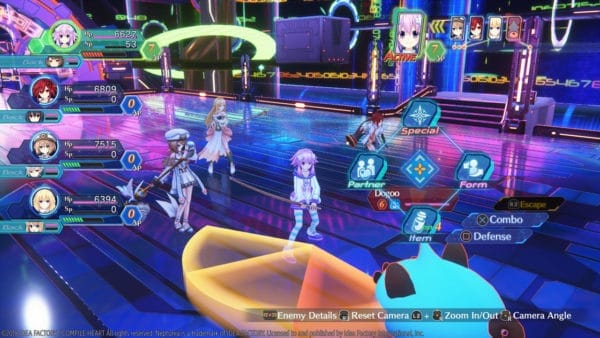
Combat control feels more within the player’s grasp than before. The more dynamic nature of slaying foes makes each fight more exhilarating. Then again, the way combos string together and function inevitably forces those familiar with the original to essentially relearn the game. Mainly because revised stats accompanying various skills and attacks that guaranteed victory previously may render some approaches disappointingly ineffective. Others may miss the faster-paced simplicity of streamlined macros in place of repeatedly confirming actions for more methodical management.
Meanwhile, some may enjoy the strategy of rationing AP to set up combo attacks employing multiple party members later in a fight while others will see that element as a giant stone holding back the tempo of every skirmish. Spending money on new skills and attacks from a catch-all menu is convenient, but convenience comes at a cost of earning and experimenting with new options by leveling up. The reconceived UI functions perfectly and won’t trouble brand-new players in the slightest, but the new layout may temporarily jar the original’s fans. I have to admit, some of these alterations would have been better employed with an option to utilize “classic” interfaces or systems when possible.
Checking Out the View
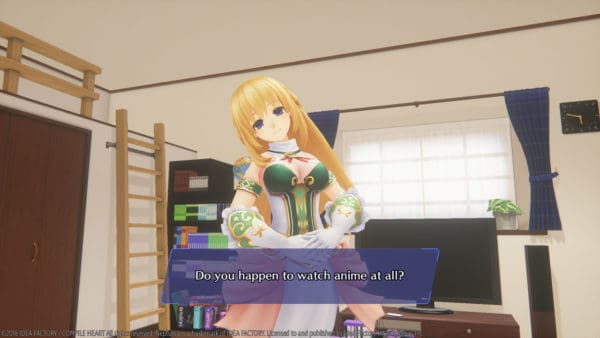
Megadimension Neptunia VIIR is superbly slick. The original was a vivid feast of stylized light and color to begin with, but the improved engine achieves vastly enhanced detail from special attack effects to monster designs while eradicating washed-out colors and occasional bloom seen in the original game. Everything exhibits a current-gen cleanliness and runs with a smoothness beyond the PlayStation 3’s wildest dreams. Touched-up character models complement the redone backdrops, and multiple newly composed themes make this feel like a whole new game.
Back in the Player’s Room, feel free to touch up your environment. At any time, purchasing a few new decorations or swapping out furniture can provide a refreshing change of scenery. Allowing you to admire your achievements, check out unlocked cinematic sequences, or review the story. You can also remain charmed by the Goddesses as they stumble in and out of your home with their own highly individualized personalities.
Pros
The vastly improved engine makes the game feel new again
Micro-managed combat
Smart, slightly sassy script
Vivid character models
Loads of fourth-wall-breaking fun with the main cast
Attentive autosave
Cons
Addition of VR hinders framerate
Combat, UI updates may divide previous fans
Sexy, cheeky humor risks overshadowing clever game industry commentary
Truncated story
Final Thoughts
Overall Score: 7.0 Out of 10 Strange as this may sound, my final rating may not adequately reflect my high opinion of Megadimension Neptunia VIIR as accurately as I would like. The VR can feel like an afterthought since it never impacts active gameplay. Well, except when it weighs down the framerate. Then again, the interstitial segments are rather endearing. Especially because the characters are so infectiously likable. The mechanical shifts may polarize experienced players who loved the original’s UI and combat. However, newbies may not be so quick to judge and just roll with what the game offers.
Speaking of VIIR’s predecessor, I did find it disappointing that parts of the story were actively shaved off without a decent justification. Seemingly giving devoted fans willing to double dip on this remake less of the game they loved for their money. All of that may sound damning, but the whole is far great than the sum of the parts here. This is still an immensely enjoyable, witty JRPG worthy of placement among some of the best-reviewed titles at any price point in its class.
